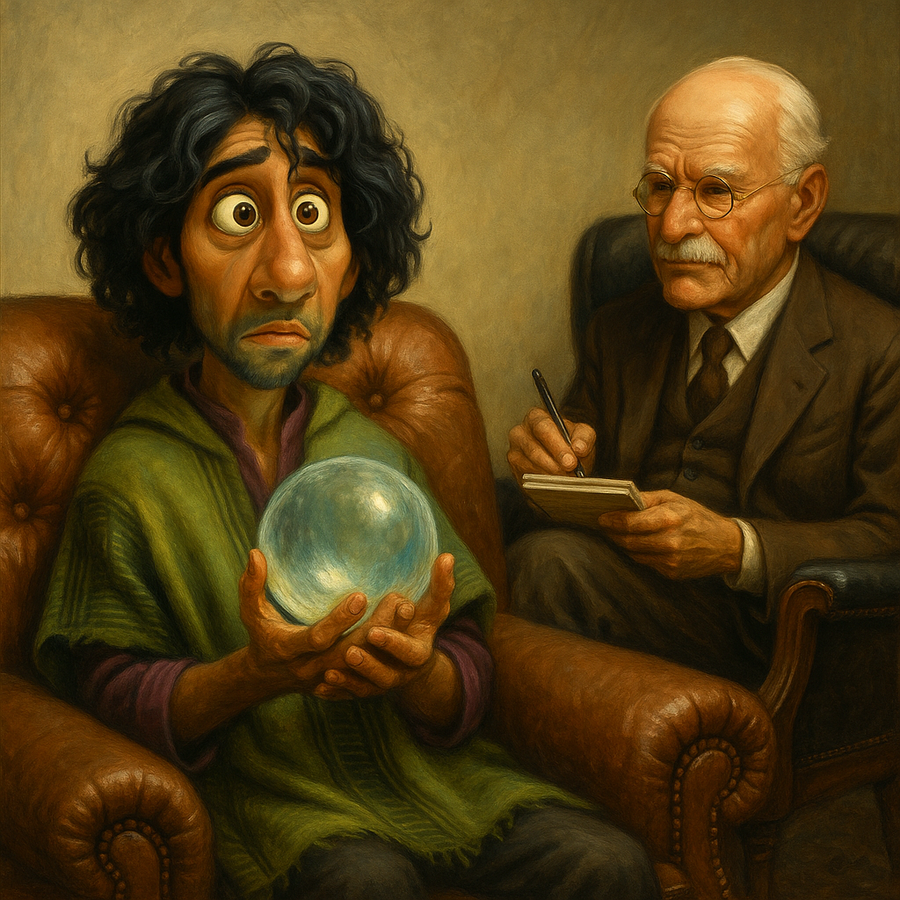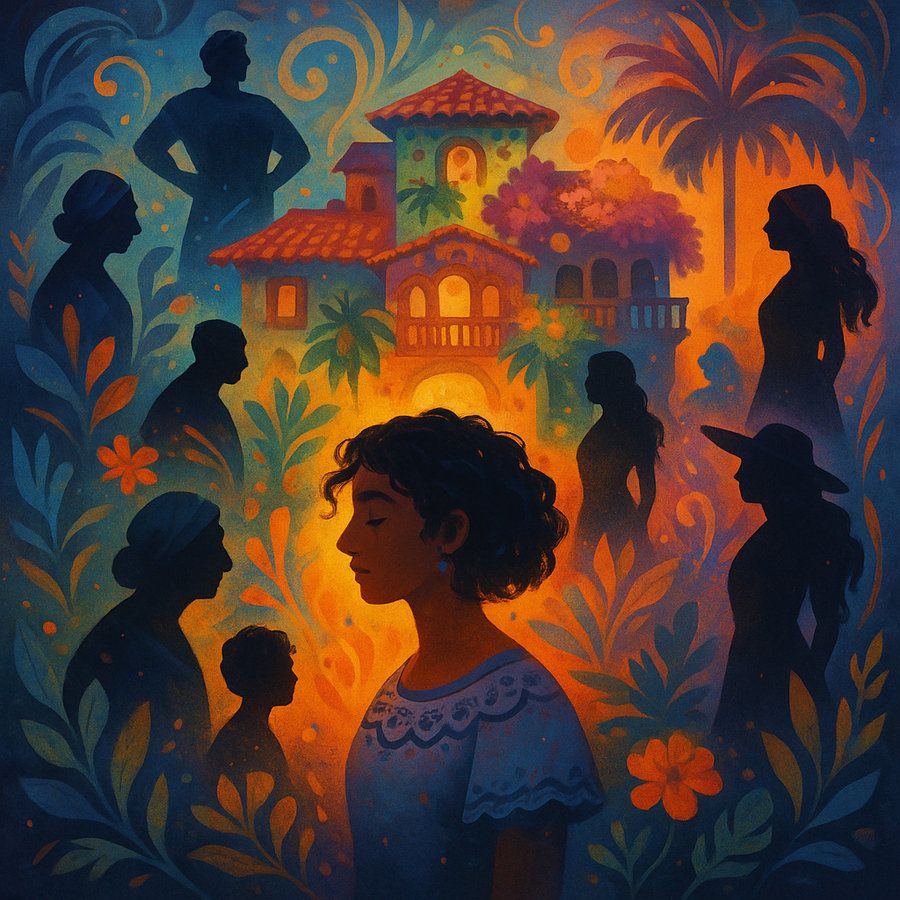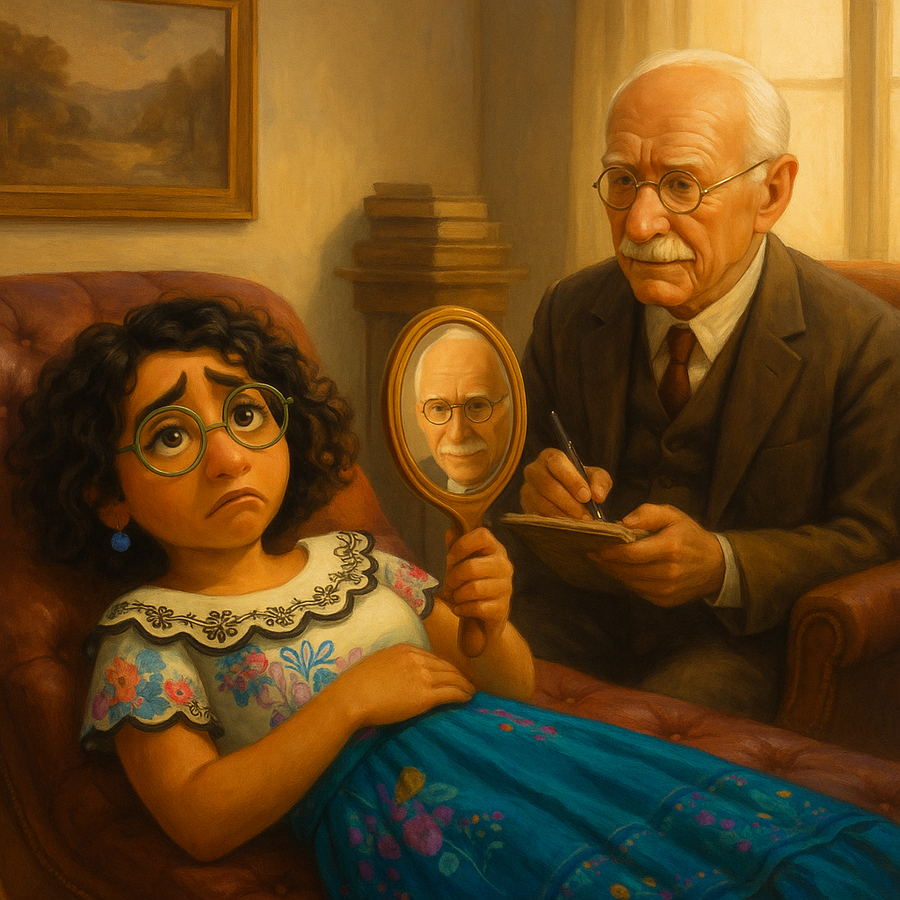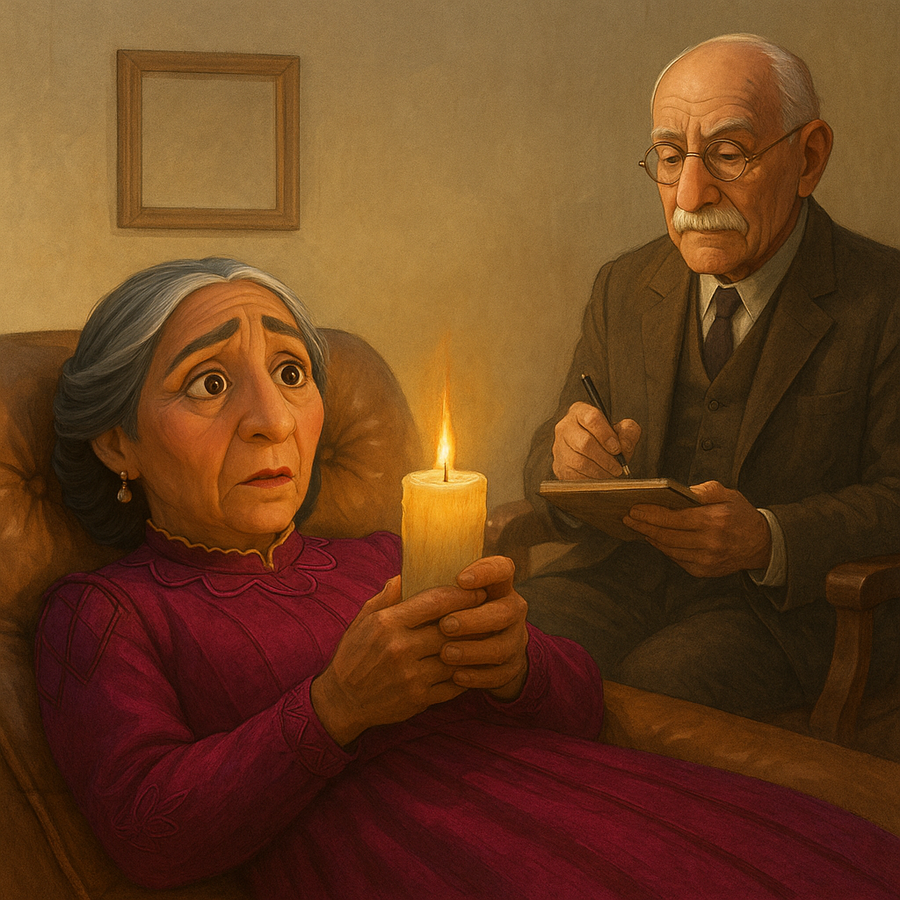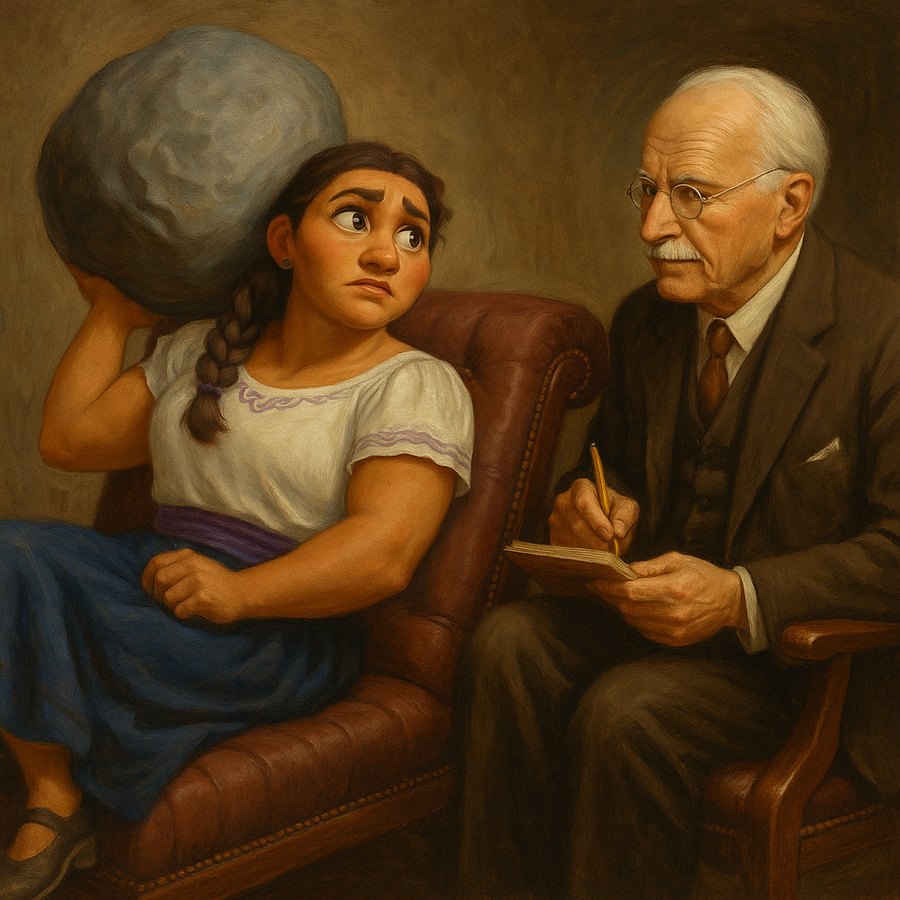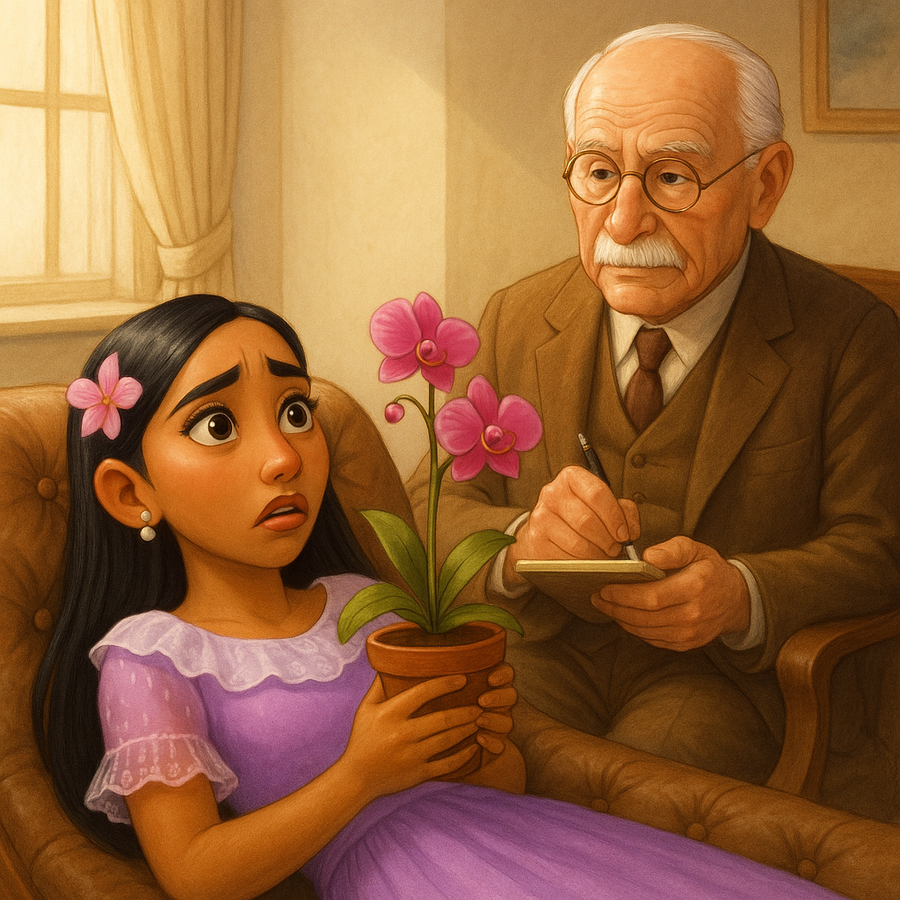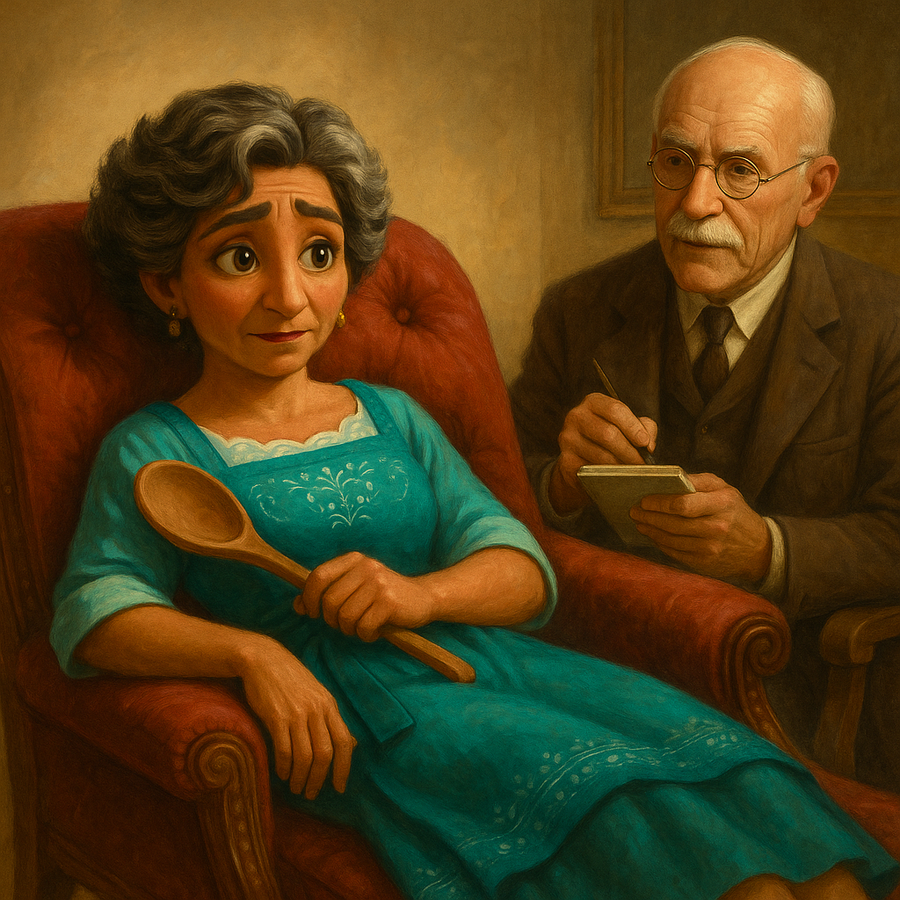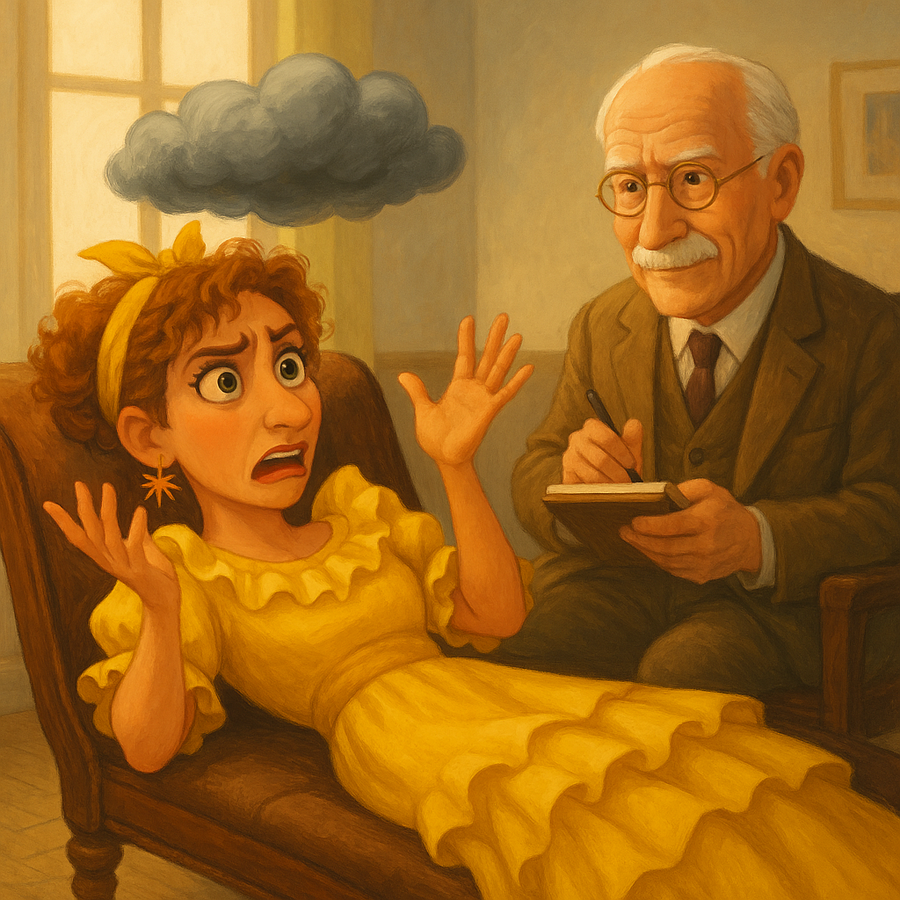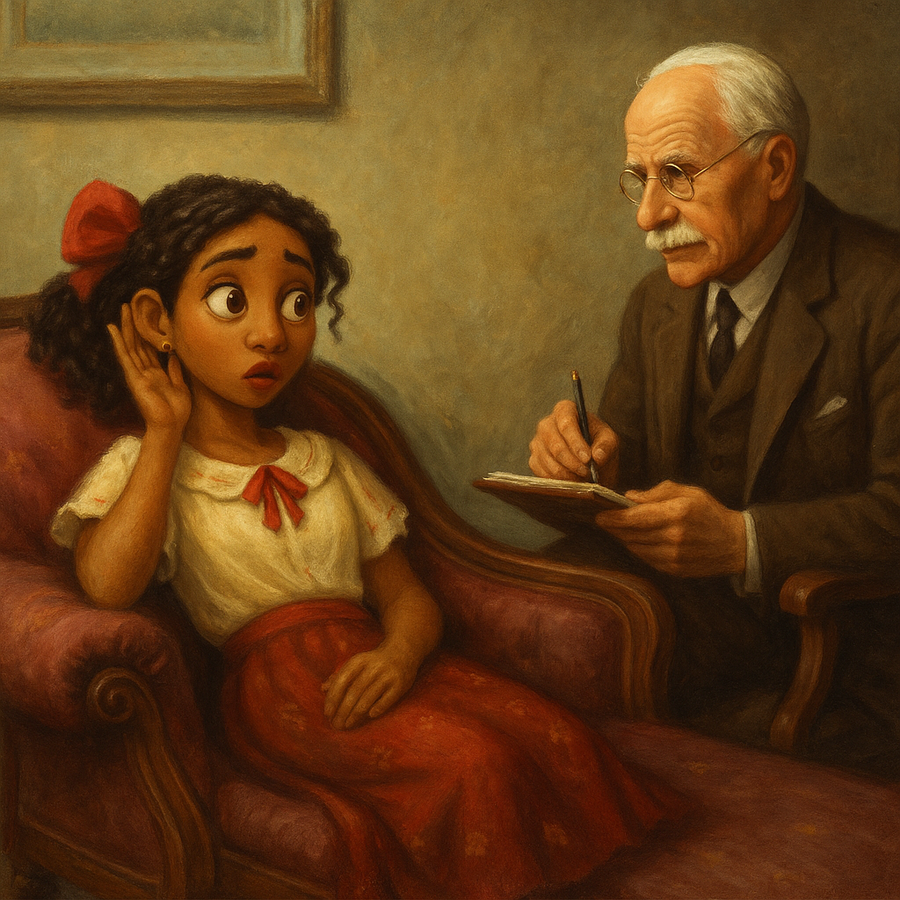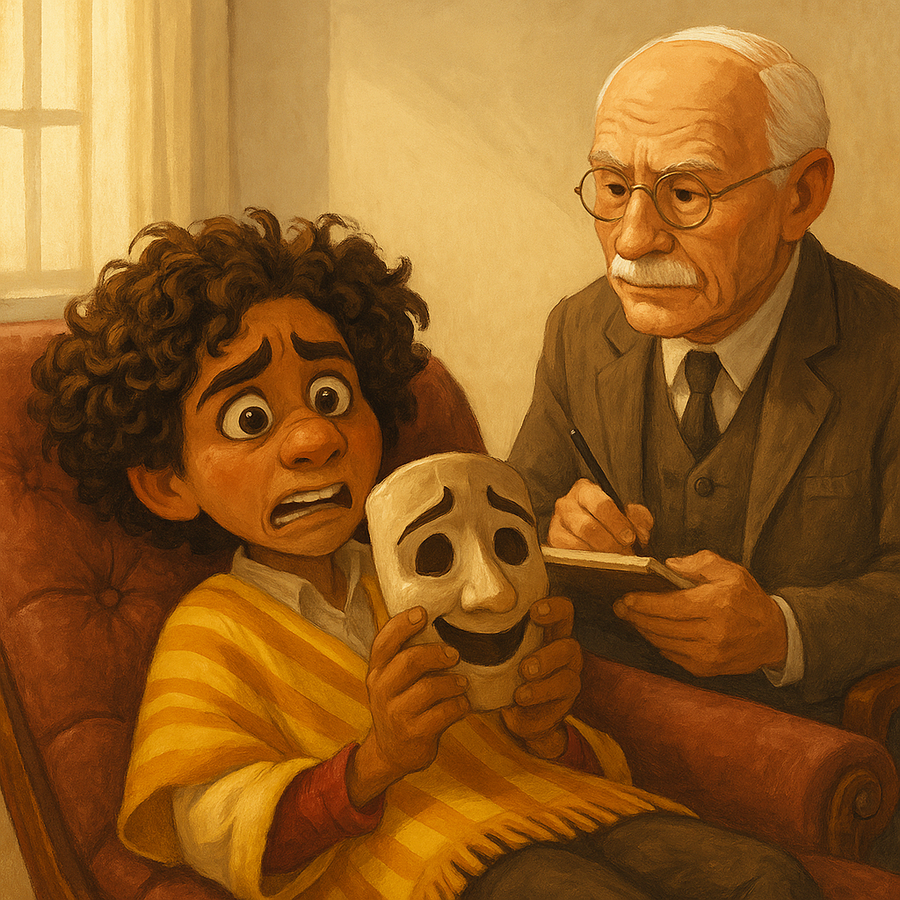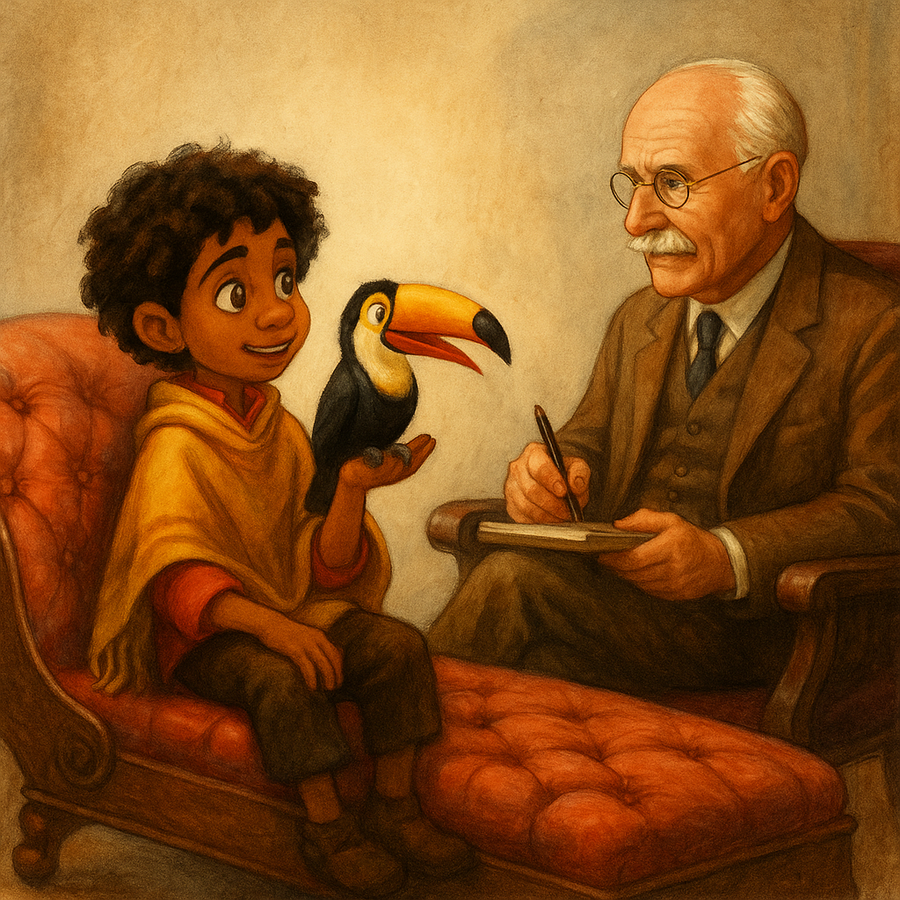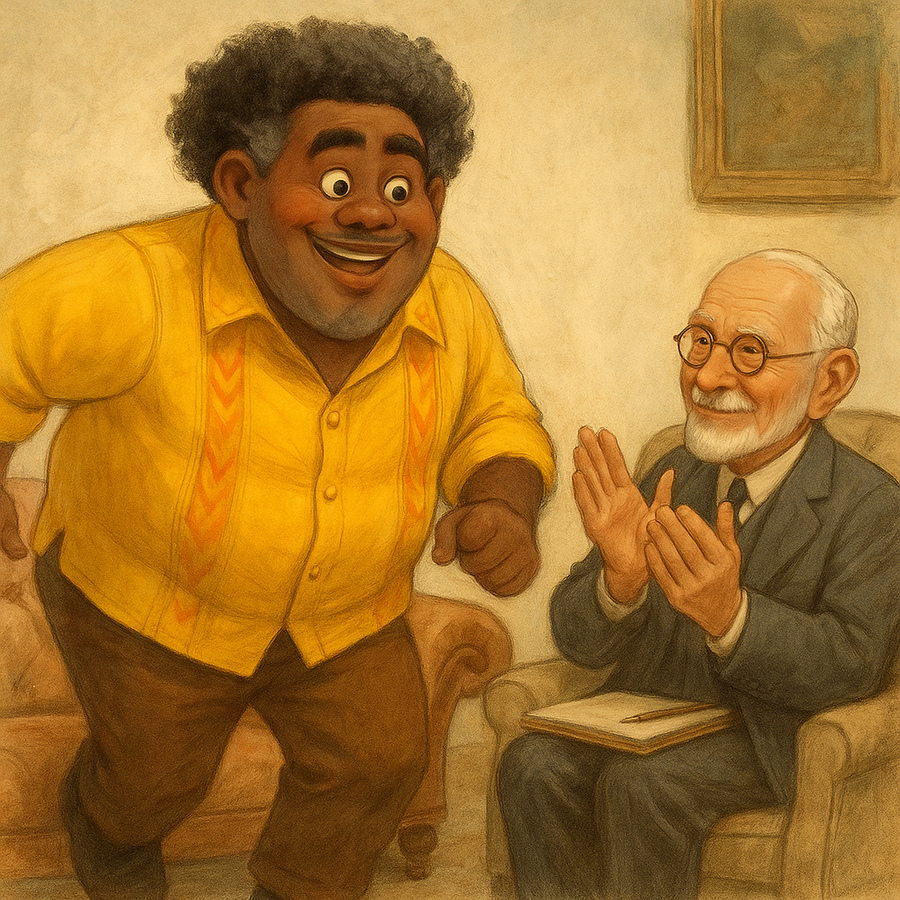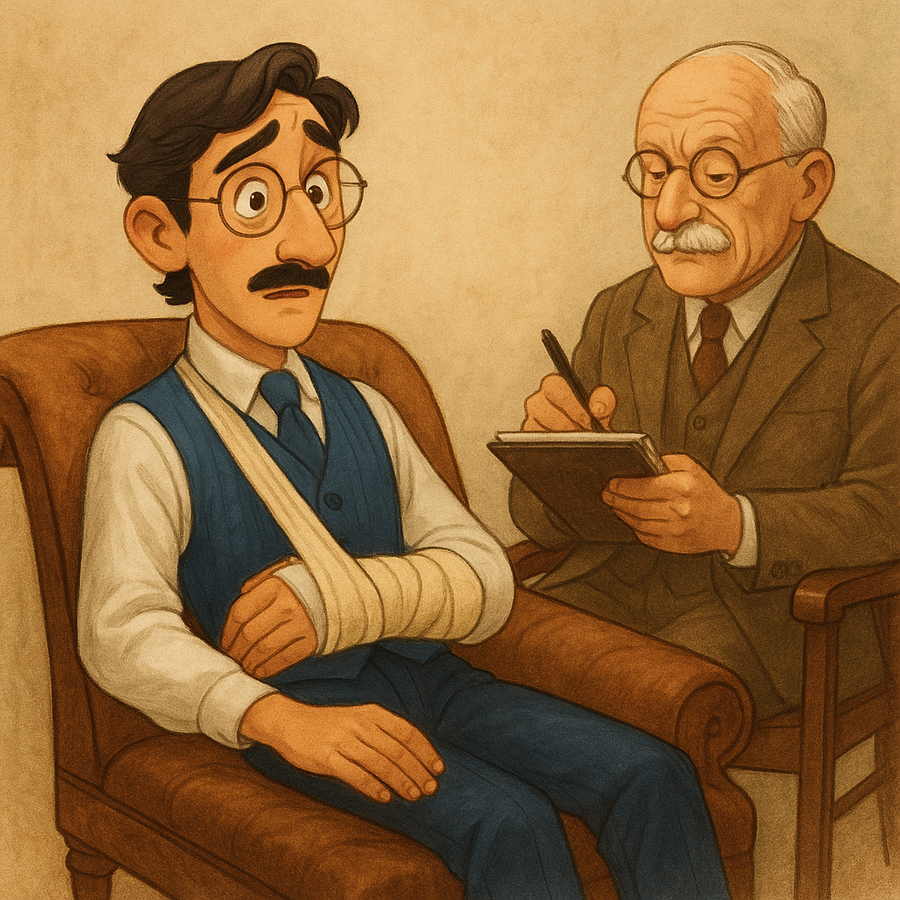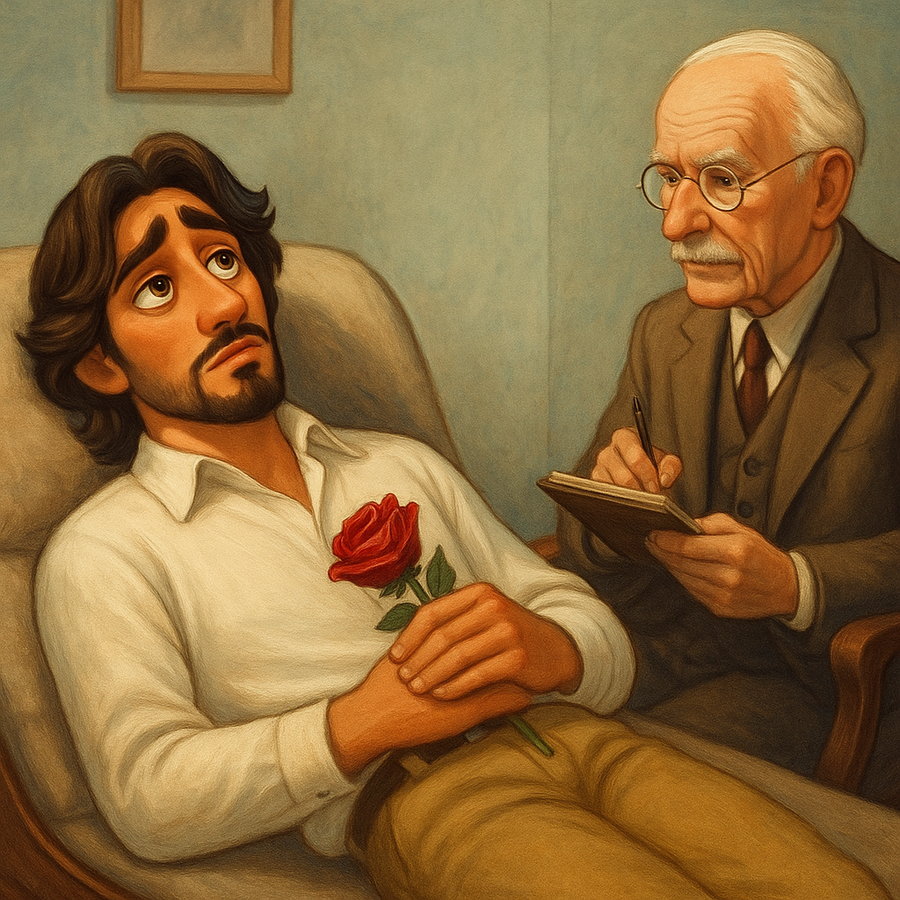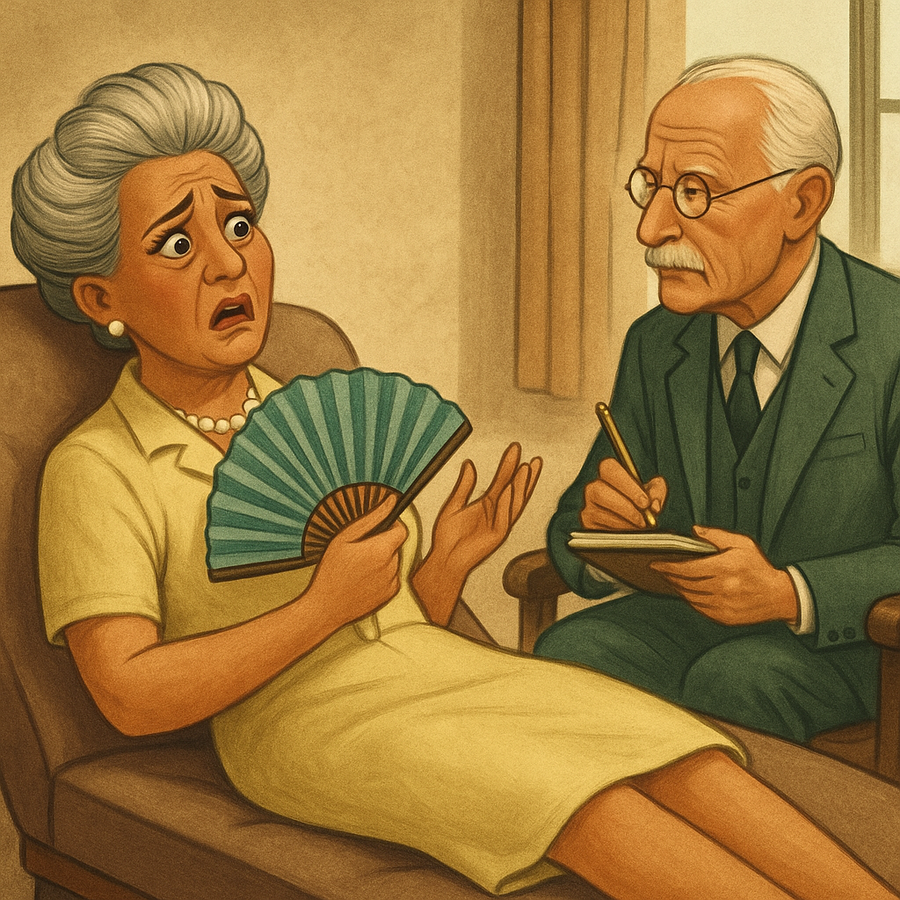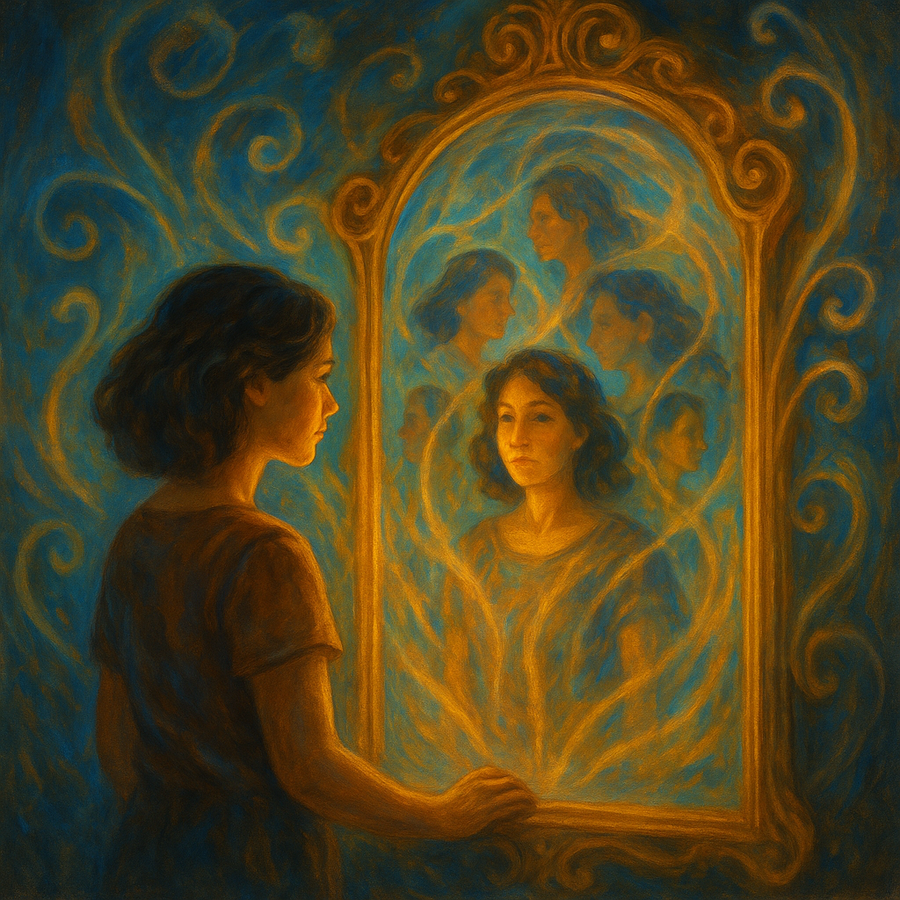Archetype: The Black Sheep / The Shadow / The Dreamer / The Truth-Teller
Bruno is the family's forgotten prophet, banished not for wrongdoing but for truth-telling. His archetype as The Black Sheep marks him as the family’s scapegoat, but his true psychological role runs deeper. He personifies The Shadow in Jungian terms - everything the family disowns, avoids, or refuses to integrate. His visions are not threats; they are mirrors. But because they often reveal uncomfortable or ambiguous truths, he is cast out. What gets rejected is not just Bruno, but the family’s ability to face its own uncertainty and grief.
In Internal Family Systems (IFS), Bruno represents an Exile - a part of the system that carries burdens of fear, rejection, and insight. He has been locked away, not just in the walls of the house but in the unconscious of the family system. And like many Exiles, he still watches and cares from the shadows. His “we don’t talk about Bruno” status shows how families often suppress the part of themselves that knows the truth, because acknowledging it would mean acknowledging pain.
From the perspective of the 7 Inner Child Archetypes, Bruno maps onto The Abandoned Child or The Dreamer. He is sensitive, imaginative, and intuitive - qualities that often go unprotected in environments where control is prioritized over expression. His exile mirrors the childhood experience of being emotionally exiled: physically present but emotionally erased. Yet he never fully disconnects. His rituals, his love for his family, and his quiet support of Mirabel show that his exiled part is still connected to the Self.
Bruno's return does not involve retaliation or even a demand for apology. He reintegrates as The Truth-Teller, a necessary part of the system that must be accepted for the family to truly heal. His arc reflects the Jungian path of shadow integration - the moment when the repressed content is not just exposed, but welcomed back with compassion. Bruno’s gift is not seeing the future. It is helping the family see itself. Bruno embodies the family's repressed truths and collective fears. Cast out for his prophecies, he becomes The Shadow - not inherently bad, but inconvenient. He also channels The Cassandra, a figure who speaks truths no one wants to hear, and the Visionary Outcast found in many healing narratives. In trauma-informed terms, Bruno may represent the Exiled Part - a necessary voice pushed out to preserve the family illusion.
